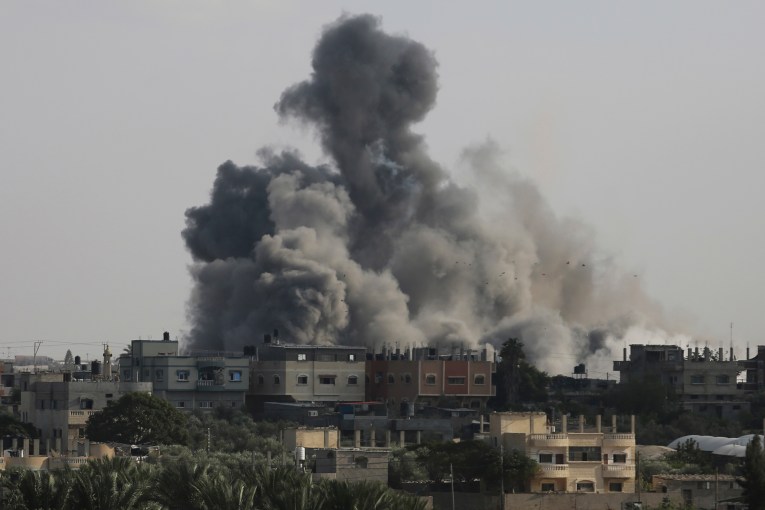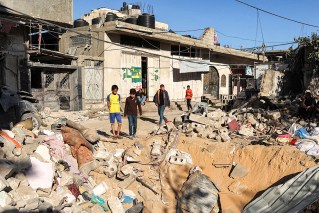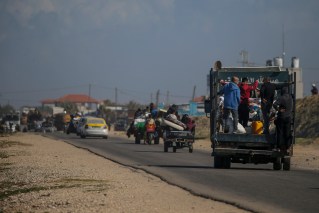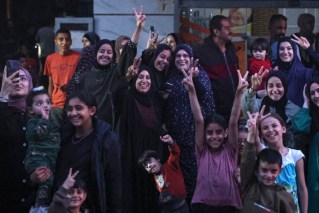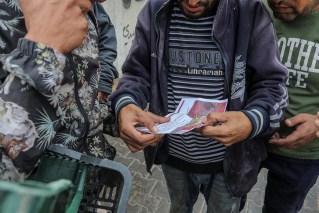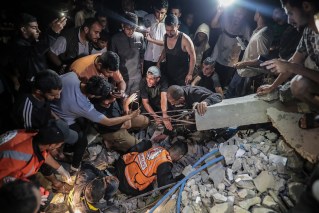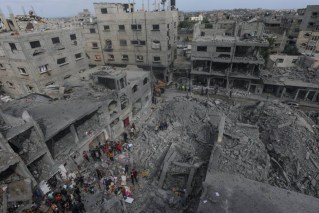Search and rescue efforts ‘largely end’ in Turkey
Search and rescue efforts after the devastating earthquake in the Turkey-Syria border region have almost all ended.
Missions to recover people alive have officially ended in nine quake-hit provinces, except Kahramanmaras and Hatay, head of the disaster authority AFAD Yunus Sezer said in Ankara.
The total number of people in Turkey killed in the earthquake has reached 40,689, AFAD said on Sunday.
In Syria, the death toll is reported to be 5900, although that figure is not being updated frequently. According to the United Nations, 8.8 million people have been affected by the disaster in Syria.
“[The] majority [is] anticipated to need some form of humanitarian assistance,” UN Deputy Syria Representative Najat Rochdi wrote on Twitter on Sunday.
“The UN is fully committed to doing more to help all Syrians,” she said.
Activists and aid workers in rebel-held areas in north-western Syria have complained of a lack of UN assistance in the days following the February 6 quakes.
So far, more than 140 trucks carrying UN aid have travelled from Turkey to rebel-held north-western Syria since the disaster, where more than 9000 buildings were completely or partially destroyed, causing at least 11,000 people to lose their homes.
According to the UN, the most urgent needs of those affected now include shelter such as tents.
The first 7.7-magnitude quake struck Turkey and Syria early on February 6; another large tremor hit at noon that day and there had been more than 6000 aftershocks, disaster authority AFAD said.
The devastating earthquake destroyed or damaged about 105,000 buildings and left tens of thousands homeless in south-eastern Turkey.
More than 1.2 million people are believed to have been evacuated from the south-eastern Turkey disaster zone. Over 1 million locals are currently living out of temporary shelters in quake-hit provinces, according to AFAD.
To help victims, the Turkish government called on property owners to provide housing for the earthquake victims and for those who don’t own property to donate money.
Survivors still being dug out of the rubble
For many grieving families their only hope is that the remains of their loved ones will be found so they can mourn at their grave site.
“Would you pray to find a dead body? We do … to deliver the body to the family,” said bulldozer operator Akin Bozkurt as his machine clawed at the rubble of a destroyed building in the town of Kahramanmaras.
“You recover a body from under tonnes of rubble. Families are waiting with hope,” Mr Bozkurt said. “They want to have a burial ceremony. They want a grave.”
According to Islamic tradition, the dead should be buried as quickly as possible.
The head of Turkey’s Disaster and Emergency Management Authority, Yunus Sezer, said the search and rescue efforts would largely end on Sunday night.
Neither Turkey nor Syria have said how many people are still missing following the quake.
Twelve days after it hit, workers from Kyrgyzstan tried to save a Syrian family of five from the rubble of a building in Antakya in southern Turkey.
Three people, including a child, were rescued alive.
The mother and father survived, but the child died later of dehydration, the rescue team said. An older sister and a twin did not make it.
“We heard shouts when we were digging today an hour ago. When we find people who are alive we are always happy,” Atay Osmanov, a member of the rescue team, told Reuters.
Ten ambulances waited on a nearby street that was blocked to traffic to allow the rescue work.
Workers asked for complete silence and for everyone to crouch or sit as the teams climbed to the top of the rubble of the building where the family was found to listen for any more sounds using an electronic detector.
As rescue efforts continued one worker yelled into the rubble: “Take a deep breath if you can hear my voice.”
With sanitation infrastructure damaged, health officials are concerned over the possible spread of infection.
The World Health Organisation estimates that some 26 million people across both Turkey and Syria need humanitarian aid.
In Syria, which has reported more than 5800 deaths, the World Food Programme said authorities in the north-west of the country were blocking access to the area.
“That is bottlenecking our operations. That has to get fixed straight away,” WFP director David Beasley told Reuters on the sidelines of the Munich Security Conference.
The bulk of fatalities in Syria are in the north-west, an area controlled by insurgents at war with forces loyal to President Bashar al-Assad.
“Time is running out and we are running out of money. Our operation is about $50 million a month for our earthquake response alone, so unless Europe wants a new wave of refugees, we need get the support we need,” Mr Beasley added.
Thousands of Syrians who had sought refuge in Turkey from the civil war have returned to their homes in the war zone – at least for now.
